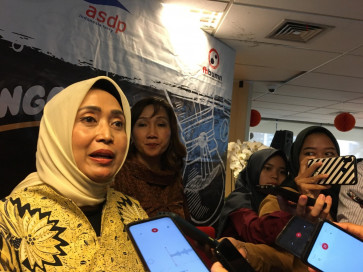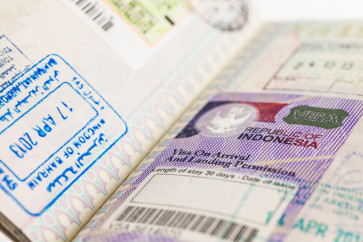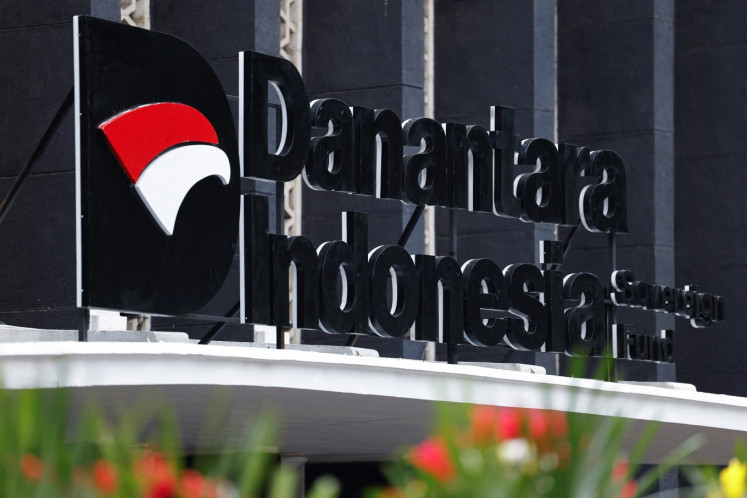Popular Reads
Top Results
Can't find what you're looking for?
View all search resultsPopular Reads
Top Results
Can't find what you're looking for?
View all search resultsForeign workers reluctant to join national health insurance
Foreign workers living in Indonesia are reluctant to participate in the national health insurance (JKN), run by the social security providers (BPJS) that was recently launched by the government, due its unclear conditions
Change text size
Gift Premium Articles
to Anyone
F
oreign workers living in Indonesia are reluctant to participate in the national health insurance (JKN), run by the social security providers (BPJS) that was recently launched by the government, due its unclear conditions.
They see the JKN as unnecessary as they are already covered by private health insurance through the companies they work for.
'The JKN sounds like a good idea with good intentions and can certainly be beneficial for long-term expatriate workers like me. But, its conditions need to be stipulated clearly before I can commit to paying regular fees,' Zubaidah Nazeer, a Singaporean who has been working in the capital city for the past three years told The Jakarta Post.
A Similar response was expressed by Joe, an American who has been working in the country for around 18 years in the aviation marketing sector.
He said he had no information regarding the details of the JKN, such as what level of healthcare he would be entitled to and which hospitals he could go to following its launch by President Susilo Bambang Yudhoyono on Tuesday.
Companies, both local and international, who employ foreign workers also said that they had yet to make any decision on participating in the JKN as the details were still unclear.
PT Jakarta International Container Terminal (JICT) spokeswoman Indira Gita said that the firm had their own private health insurance, which the firm had been going well for years.
'If we find in the future that the state-run insurance is better than ours, there is a good chance that we will join it. But, at the moment, the insurance that we have is sufficient,' Indira said.
JICT is a subsidiary of Hong Kong based Hutchison Port Holdings (HPH) that operates a terminal in the country's main gateway Tanjung Priok in North Jakarta.
Meanwhile, Susi Pudjiastuti, domestic charter airline PT ASI Pudjiastuti Aviation (Susi Air) CEO, said that she would not join the JKN since all of her foreign pilots were covered by private health insurance.
Besides, she said that her pilots only worked in Indonesia between six months to two years.
In addition, foreigners were disinclined to apply for the JKN due to criticism of poor healthcare services in the archipelago.
Joe, for instance, who usually flew to Singapore to get medical treatment, said that the overall level of local hospitals and doctors were below par, whether state or private.
'The National University Hospital is a government hospital in Singapore but it is great in all aspects, most importantly in respect to how it treats patients,' he said.
Separately, Deputy Health Minister Ali Ghufron Mukti said that the government had yet to decide whether the BPJS would be optional or compulsory for foreigners who had been living in the country for more than six months.
Mukti said, however, it was better for them to be protected by the BPJS as they have become residents after spending more than one semester in Indonesia.
'We are still discussing this issue internally, but we advise them to join the JKN since it is beneficial and guarantees that they will be covered whenever they are sick,' he said.
Moreover, he added that the government was currently working to improve doctors' skills and services in hospitals across the archipelago to attract more people to take part in the new national health insurance.
He said today doctors were obliged to join internships and the ministry has set up a Hospital Supervisory Board to monitor hospitals' levels of services.
Manpower and Transmigration Ministry has issued between 50,000 to 77,000 work permits for foreign citizens annually for the past five years.
The permits have been for professionals, advisers, consultants, managers, directors, supervisors, technicians, and commissioners in agriculture, industry, trade and service sectors.










